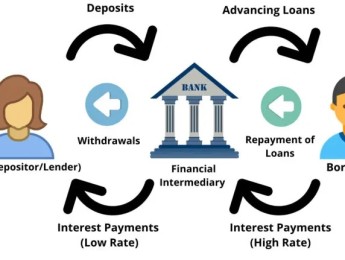This course offers a comprehensive understanding of Building Information Modeling (BIM) beyond traditional 3D applications—exploring 4D (time), 5D (cost), and 6D (sustainability and facility management) dimensions. As the construction and infrastructure industries increasingly adopt digital workflows, mastering multi-dimensional BIM becomes essential for delivering efficient, cost-effective, and sustainable projects.
Through practical modules and real-world case studies, participants will learn how to integrate different BIM dimensions across the project lifecycle—from design to post-construction operation. The course also examines the strategic value of BIM in collaboration, project coordination, clash detection, and asset management.
By the end of the training, learners will be equipped with the tools and confidence to implement integrated BIM strategies that support smarter planning, execution, and long-term performance.
Participants will be able to:
- Understand the role and benefits of 3D, 4D, 5D, and 6D BIM dimensions.
- Apply 4D BIM for construction sequencing and scheduling.
- Use 5D BIM for cost estimation and financial control.
- Explore 6D BIM for sustainability tracking and facilities management.
- Coordinate multidisciplinary teams using BIM tools.
- Identify software solutions and data standards supporting BIM dimensions.
- Evaluate case studies of successful BIM integration.
This course is ideal for:
- Architects and Engineers.
- BIM Coordinators and Managers.
- Construction Project Managers.
- Cost Estimators and Planners.
- Sustainability Consultants.
- Facilities Managers.
- Government and Infrastructure Planners.
This course is delivered through a blend of interactive lectures, software walkthroughs, group projects, and BIM simulations. Participants will work with digital models to apply concepts in real time, discuss best practices in collaborative settings, and receive feedback from industry experts to enhance their skills across all BIM dimensions.
Day 5 of each course is reserved for a Q&A session, which may occur off-site. For 10-day courses, this also applies to day 10
Section 1: Introduction to BIM and Dimensional Frameworks
- Overview of BIM evolution and global standards.
- Understanding the purpose and scope of 3D to 6D BIM.
- Key BIM terminologies, platforms, and collaboration tools.
- Benefits of multi-dimensional integration.
Section 2: 3D BIM – Design and Visualization
- 3D modelling for architecture, structure, and MEP systems.
- Model coordination and clash detection.
- Use of visualisation tools for stakeholder engagement.
- Integration with GIS and reality capture (e.g., point clouds).
Section 3: 4D BIM – Time and Scheduling
- Linking 3D models with construction timelines.
- Tools for construction sequencing and simulation.
- Detecting schedule clashes and improving efficiency.
- Monitoring construction progress through 4D models.
Section 4: 5D BIM – Cost Estimation and Budget Control
- Integrating cost data into BIM workflows.
- Quantity take-offs and cost tracking.
- Budget analysis and financial forecasting.
- Tools and platforms for 5D BIM (e.g., Navisworks, CostX).
Section 5: 6D BIM – Sustainability and Lifecycle Management
- Embedding sustainability metrics in BIM.
- Energy modelling, LEED integration, and carbon tracking.
- Post-occupancy analysis and maintenance planning.
- Lifecycle cost analysis and facilities management.
Section 6: BIM Integration and Collaborative Workflows
- Data interoperability and standards (IFC, COBie).
- Coordinating across disciplines using Common Data Environment (CDE).
- Cloud-based collaboration and BIM 360 workflows.
- Legal, contractual, and regulatory considerations in BIM projects.
Section 7: Case Studies and Capstone Project
- Global examples of BIM dimension implementation.
- Lessons learned and common pitfalls.
- Group project: Develop a mini BIM strategy plan across 3D–6D.
- Final presentation and feedback.
Upon successful completion of this training course, delegates will be awarded a Holistique Training Certificate of Completion. For those who attend and complete the online training course, a Holistique Training e-Certificate will be provided.
Holistique Training Certificates are accredited by the British Accreditation Council (BAC) and The CPD Certification Service (CPD), and are certified under ISO 9001, ISO 21001, and ISO 29993 standards.
CPD credits for this course are granted by our Certificates and will be reflected on the Holistique Training Certificate of Completion. In accordance with the standards of The CPD Certification Service, one CPD credit is awarded per hour of course attendance. A maximum of 50 CPD credits can be claimed for any single course we currently offer.
- Course Code IND04 - 131
- Course Format Classroom, Online,
- Duration 5 days








